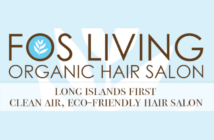The Two Faces of Xylitol
You’ve seen it in your chewing gum, you’ve seen it in your toothpaste, your Pilates-loving cousin swears by it—but  what is xylitol?
what is xylitol?
Xylitol is categorized as a polyalcohol or sugar alcohol. It is derived from xylose, which is a naturally-occurring sugar found in a variety of fruits and other plants. It is commonly obtained from corn or birch bark.
Dr. Linda Golden of Golden Dental Wellness, in Manhasset, has previously recommended xylitol to her patients, and maintains that it is indeed useful and widely-regarded as a safe supplement to oral wellness, but her job as a holistic dentist is to remain on leading edge of research, and more importantly, pass that on to her patients. She recently attended a workshop led by Dr. Gerry Curatola, a top holistic dentist and world-renowned author of The Mouth Body Connection, who has uncovered another side of this sugar alternative.
The general consensus among most dentists is that xylitol is beneficial to the oral cavity. It is known to kill bad bacteria, namely Streptococcus mutans, which is a primary culprit when it comes to plaque and tooth decay. It is also celebrated for looking and tasting like sugar, but not raising blood sugar levels.
In a 2012 study by the National Institutes of Health, consuming xylitol-sweetened chewing gum was found to reduce bad bacteria by 27-75 percent; and in a 2011 study it was found to reduce cavities and tooth decay by 30-85 percent.
However, many people are misguided when it comes to just how natural xylitol really is. It’s painted on countless articles and blogs as being naturally extracted from birch bark, but that’s not the whole picture. In fact, according to Dr. Curatola, 80 percent of xylose in the United States is actually obtained from GMO-corn. The GMO issue and environmental impact comprise a whole other conversation to be examined more closely at a later time.
Once the xylose is extracted from the corn, it goes through an industrial hydrogenation process. As many health-minded people know, hydrogenated products can increase the risk of liver disease, Type 2 diabetes, Alzheimer’s, certain types of cancer, and more. To make it worse, nickel is most frequently used as the catalyst in this process—a toxic heavy metal that can cause kidney problems, asthma, dermatitis, and more. Xylitol is anything but the natural and holistic product that people might know it to be. In reality, it’s a highly processed, hydrogenated chemical, made in a laboratory.
Although xylitol does indeed kill bad bacteria in the mouth, Dr. Curatola explains that it disrupts the microbiome. This means that it also strips the oral cavity of good bacteria, which is the mouth’s natural way of fighting pathogens; bringing nutrients, minerals and oxygen to the teeth; and maintaining a healthy pH level. When the oral ecosystem is thrown out of balance, it can result in gum disease and other complications.
Further, sugar alcohols like xylitol are dangerous for the whole body. While nutrients from food are typically absorbed into the bloodstream, xylitol is not absorbed or metabolized and has no nutritional value. It is essentially non-digestible, moving through your GI tract unaffected. As this sugar alcohol remains in your gut, it is fermented and may cause bacterial overgrowth and yeast—resulting in bloating, cramping, gas, diarrhea, and acid reflux. This is particularly risky for people with Crohn’s disease, SIBO, or irritable bowel syndrome.
Instead of using xylitol, Dr. Curatola stresses the importance of maintaining a healthy microbiome in the mouth. He describes it’s not about one bacteria causing the problem, it’s about this environment being out of balance. He suggests balance-promoting (rather than bacteria-stripping) oral care products, such as his prebiotic toothpaste Revitin®.
For those looking for lower-glycemic sugar alternatives for food, again, xylitol may not be the best choice. Stevia, raw local honey, dates, coconut sugar, and grade B or C maple syrup are the more natural way to go.
In the holistic world, learning is a constant. Dr. Golden of Golden Dental Wellness Center in Manhasset is consistently expanding her knowledge-base and asserting herself at the forefront of integrative innovation. She uses this wealth of information to create treatment protocols and home practices that lay the foundation for safe and sustained oral health.
Golden Dental Wellness Center is located at 444 Community Dr., Ste. 204, Manhasset. To learn more, call 516-627-8400 or visit GoldenSmile.com.





